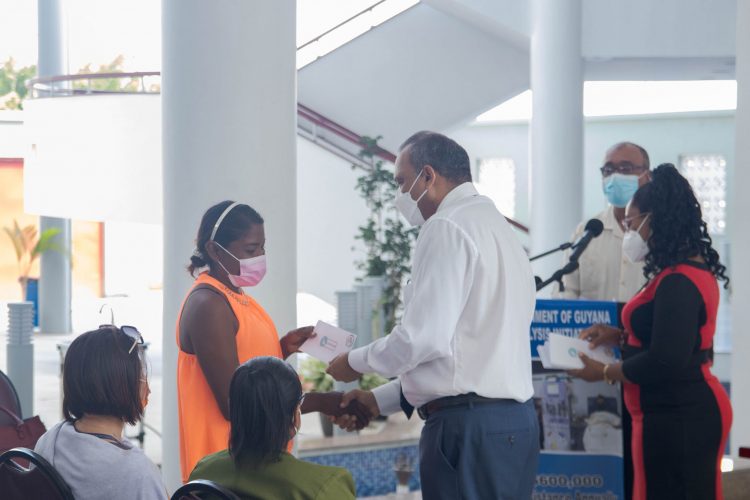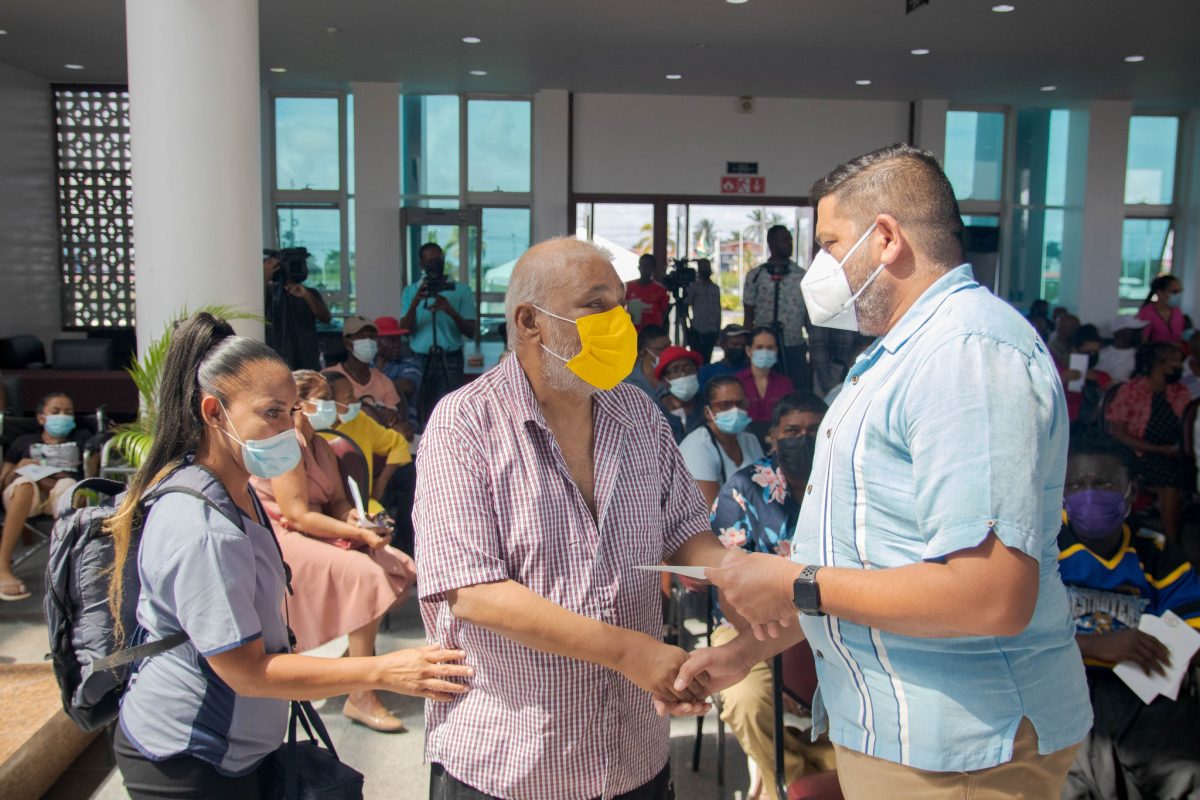The Ministry of Health yesterday began the disbursement of the $180 million allocation to assist dialysis patients to cover their treatment expenses.
Health Minister Dr Frank Anthony launched the programme at the Arthur Chung Conference Centre with 79 persons registering to receive the annual $600,000 grant. The budgetary allocation caters for 300 dialysis patients. According to the Health Ministry, that is the number on record of all Guyanese suffering from kidney failure.
Persons with kidney disease and requiring dialysis, and who have not signed up for the grant, are encouraged to visit the Ministry of Health to get registered.

Anthony told the recipients that while the government is providing them with the grant to supplement their treatment costs, the onus is on them to ensure that the money is used for its intended purpose.
Currently, dialysis patients pay between $12-15,000 per session and in order to remain healthy, they need at least three sessions per week. In addition, to those three sessions, they are required to purchase medication, eat a balanced diet as well as do a series of blood tests often. Patients have been long lamenting the financial constraints they are placed in. Some of the patients are also forced to go to dialysis two times instead of three.
Anthony told the recipients that government is working to implement a system where the public laboratories at the Georgetown Public Hospital and other regional hospitals are equipped to conduct blood tests for dialysis patients with red blood cell issues.
“So one of the things that we’ll be (addressing with) the providers of dialysis is that when we are required to have laboratory tests done, they can take the sample and send those samples to our labs. The public sector can be able to do those tests free of cost. So that’s another arrangement that we will put in place,” he said.
The Minister also said that government is seeking to add erythropoietin – one of the critical drugs in the treatment of kidney disease – to the list of medications offered in the public health care system by the end of the year.
“One of the medicines that you normally would get, the erythropoietin that too is very expensive. I think some of you probably end up every two weeks or three weeks as the case might be, you have to pay another $7-9,000 depending on you know where you’re going to get it and that too can quickly add up to a huge cost. So we have been strategizing how we can help you with that as well and so, we have decided that one way that you can help is that we will put erythropoietin as part of the medicines that we will be procuring for the country. We will budget to make sure that we are procuring enough for the patients that we have and we will make that available to every dialysis patient free of cost. So once your doctor is prescribing it, we’ll make it available to you,” he explained.
He added that government is also working with PAHO/WHO to reduce the cost to treat hepatitis C and that programme would be launched in a few months.
Anthony also told the recipients that government is actively making sure that dialysis centres are maintaining the standards and recently brought in an expert from Argentina as part of an assessment of the dialysis infrastructure. Another consultant is expected to arrive in Guyana to continue that assessment.
PAHO/WHO Officer in Charge Dr Daniel Albrecht pledged the organization’s commitment to assist Guyana in building its medical infrastructure to ensure that quality care is delivered.
The patients also expressed their gratitude for the grant noting that it would ease some of the burden on them.





